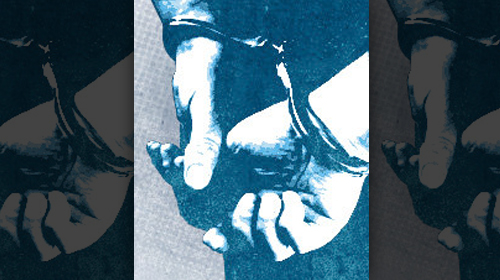Georgia Chooses Path Toward Criminal Justice Reform; Oklahoma Misses an Opportunity


This year, both Georgia and Oklahoma took up criminal justice reform, but ended up in two quite different places.
In Georgia, Gov. Nathan Deal signed a bill this week that takes a smart approach to criminal justice. The new law creates less severe penalties for drug crimes, expands drug courts, and provides alternatives to incarceration for low-level, non-violent offenses. The package is projected to save taxpayers hundreds of millions of dollars over the next five years by reducing the prison population.
Sadly, Oklahoma followed a different path. In that state, criminal justice “reform” legislation is on its way to the desk of Governor Mary Fallin. It’s been called “historic“, described as “highly touted“, and billed as a “sweeping overhaul” of the criminal justice system.
But don’t buy the hype. The soon-to-be law is a disappointing flop that will likely make the state’s prison crisis worse and will actually end up cost taxpayers millions. Several of its provisions are awfully misguided. For one thing, the bill effectively takes the power to shorten prisoners’ sentences away from judges and places it in the hands of prosecutors. Although the bill expands the time in which prisoners can ask for shortened sentences, giving prosecutors authority over this decision guts that reform. Prosecutors will be more invested in maintaining the original sentence that they themselves obtained to begin with. Now, prisoners who could be safely monitored outside of prison will instead serve unnecessarily and expensively long sentences. The bill also develops “intermediary revocation facilities” for nonviolent offenders who violate conditions of probation or parole. Technical violations like missing a meeting with a parole officer will be punished with up to six months of internment in what is essentially a jail. This isn’t reforming the way Oklahoma punishes technical violations; it’s renaming it. A truly smart reform would have been to use alternatives to incarceration to address technical violations.
But the bill’s real shortcomings are what it doesn’t do. The bill doesn’t address the fundamental reasons that Oklahoma has the third-highest incarceration rate of any state and the highest rate of female incarceration in the nation. The original version of the bill would have modified the state’s harsh truth-in-sentencing law, which requires prisoners to serve 85 percent of their sentences, in order to allow greater flexibility such as time off for good behavior. Leaving out that provision is perhaps its greatest sin of omission. Now, Oklahoma’s criminal justice system will continue to be ruled by laws that put away nonviolent offenders for long terms, while failing to expand tried and tested diversion and treatment programs.
Oklahoma lawmakers would be wrong to think they can now cross criminal justice reform off their to-do list; the truth is, few states need to fix their criminal justice system more urgently than Oklahoma. Lawmakers missed a real opportunity to do so by making their system more effective, less costly and better at keeping the public safe.
Georgia lawmakers did much better, but that doesn’t mean they should cross criminal justice reform off their to-do list either. The Georgia bill is a significant step toward reforming its system and we hope the state will take up more reform next year.
Across the nation, states are taking a real look at criminal justice reform. They should choose Georgia’s path – towards real, effective reform. It’s not too late for Oklahoma to switch course, either.
Learn more about criminal law reform: Sign up for breaking news alerts, follow us on Twitter, and like us on Facebook.
Update: This post has been updated to more accurately describe the Oklahoma legislation.



